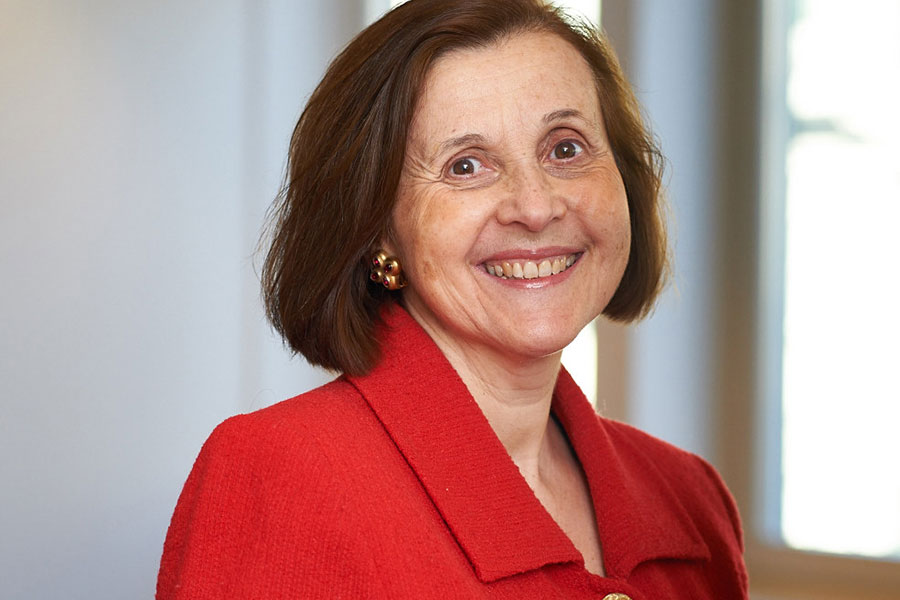- An 18 year old woman wants to “bring humanity to business” but doesn’t know how. More than 35 years later, and despite having no role models, she still hasn’t surrendered her values.
- Brigitte Baumann was told that a CEO must simply look after the bottom line. That’s all.
- Go Beyond is born; an angel investor company that shows that social impact investments can make a profit and change lives.
- While recognizing that women ‘get’ certain projects more than men, she wants to harness the ‘gets’ for the benefit of male investors too.
There can sometimes be a downside to being an early adopter. Brigitte Baumann (pictured above), founder of Go Beyond, discovered this harsh fact as an angel investor 17 years ago. The term “impact investing” hadn’t even been coined yet and she innocently assumed that investors, shareholders and board members shared her values. It was a big mistake. “I wanted to find companies that had values which represented the business of the future,” she says. “The idea of people over profit, an uncommon idea back then, was how I thought all business should be run.”
She encountered resistance from big corporations and eventually decided that it was much easier to support entrepreneurs for profit – but who considered all stakeholders, not just shareholders. As they say, if you can’t win people over, find people who already think like you. When Baumann entered the workforce 35 years ago she had expressed a desire to focus more on people. Short-sighted work colleagues told her to pursue a career in Human Resources, to which she replied, “No, I want to be the CEO.”
A stint at Wharton and then Mackenzie at Oxford in the 1990s had people whispering, “Wow! She’s going to be a CEO really fast.” Yet little-by-little she kept seeing the people-centric values and ethics she held dear beginning to divert. She recalls thinking, “Do I really need to give up my personal values and ethics in business?” When she eventually became a CEO people laughed at her approach and called her idealistic. “Don’t you get it?” they said, “This is how you should act as a CEO,” and gave her tired and stereotypical formulas.
Baumann’s had an uncompromising streak in her since she was 18 years old. When asked what she wanted to do with her life she’d say, ‘”I want to bring humanity to business.” She had no idea what “humanity” meant or even how business worked at the time. Fast forward to the present and Baumann has now founded her own company, Go Beyond. It allows novices and sophisticated investors alike to build, manage and exit portfolios and invests in young and fast growing companies. This year she was named European Business Angel Of The Year after delivering annualized returns of 15 percent and quadrupling investors’ money over a two-year period.
Seventy rounds of investment and 30 start-ups later, Go Beyond has created social impact within the traditional for-profit sector that now outweighs anything Baumann might have achieved if she’d stuck to the “traditional” way of investing.
Charitic in France is a web platform that brings charities and companies together to develop resources and corporate responsibility. Inakis is an online shopping guide for bio, eco and fair trade. Shadow Government is a simulation game that allows players to explore strategic planning models for countries, encouraging people to solve the world’s problems without a single election. Ecowizz helps utility customers better understand their energy consumption.
“We filter every deal on impact,” says Baumann. “Our dream is that impact will be how everyone does business one day. Yet, importantly, we don’t label it as such. We’re aware that some of our investors will look at our impact criteria carefully and others less so.” Baumann wants her impact investments to be shining examples of standalone returns, rather than having investors think they are simply supporting a good cause.
Angel investing in the early 2000s also had no women. “There are a lot of products that we as women totally ‘get’, and that most men don’t,” says Baumann. Once again, rather than creating a niche image that might alienate some investors, she decided against creating a women’s-only network, but rather a gender-inclusive one that incorporates ideas and inspirations on how to encourage more women business angels. Some of these considerations have been around the hours they set for meetings or calls, mindful that many female investors are still busy raising families or caring for aging parents. Go Beyond is now the only angel investor company in the world that has over a third women membership.
“I’ve found with women that we tend to want to do good and do well, as opposed to first doing well and then hoping it will do good,” says Baumann. “When you create an angel network and you want to attract more women, you need to have certain products and services that women can connect to – ones that suggest, ‘Hey this is useful to me, but it’s also useful to society.’”
A profound insight came to Baumann when she was pregnant, highlighting the magnitude of the responsibility she has to future generations. “Something happened to me physically, it wasn’t intellectual at all,” she recalls. “I felt my baby in my womb and thought, ‘Oh yeah, that’s what I am living for.’ I became more sensitive to how my investing would impact people in the future.”
Have you ever been faced with a dilemma at work where you’ve been forced to choose between your values and the status quo? Have you ever tried to introduce values in your business that go beyond profit?




































